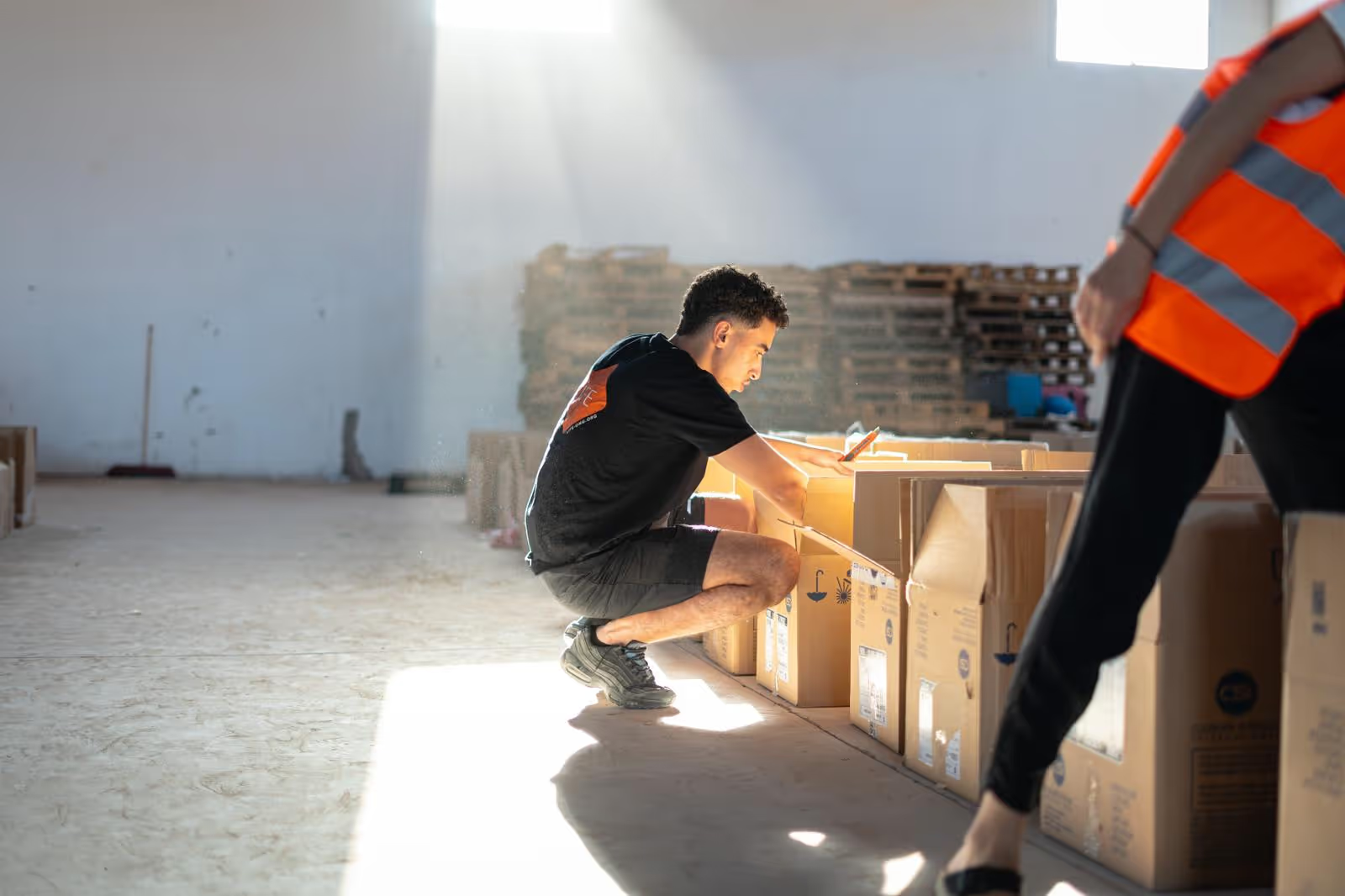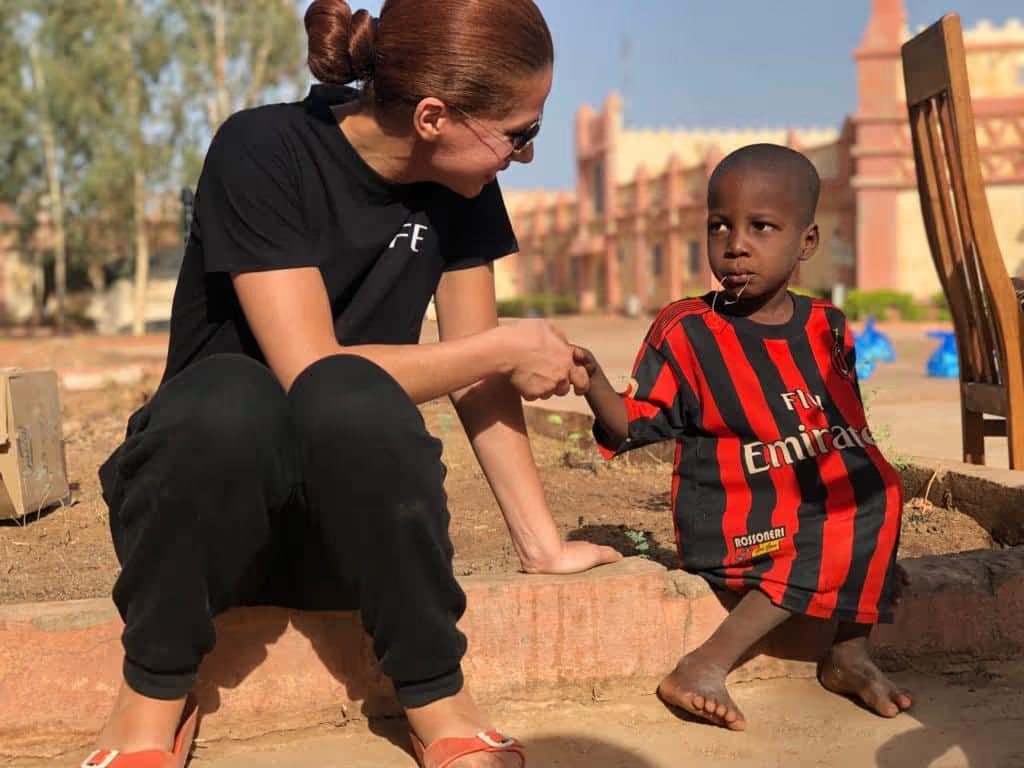9 Keys to Empowering Local Communities

Imagine a world where each community has the power to change their own destiny. A world where barriers to education, health, and economic opportunities are broken, making way for innovation, resilience, and sustainable growth.
Here are the 9 essential keys to unleash this extraordinary potential and transform lives in a sustainable and meaningful way.
1. Access to quality education
Education is the foundation on which the future of local communities is built. By investing in primary and secondary education, as well as vocational training, they can develop fundamental skills, face numerous challenges, and be much more resilient.
At LIFE, we enable thousands of children around the world to return to school, to benefit from a quality education and an environment conducive to learning.
Through our campaign “School for all ”, we are building and renovating schools, providing equipment, installing sanitary facilities and drinking water wells nearby. Children, teachers and all those around them gain in quality of life. Each year, we also distribute school kits to children from families who are in need.
And for young adults, we are increasing the number of training programs. Whether they take place in Guinea, Togo, Lebanon, Lebanon, Palestine, etc. they develop specific skills adapted to local needs: sewing, agri-food, installation and maintenance of solar energy devices, computers, etc.

2. Facilitating access to economic resources
By facilitating access to finance, markets, training, land, and by creating a favourable regulatory environment, local communities can transform their potential into economic reality.
- Microloans for example, provide small loans to entrepreneurs who do not have access to traditional banking services. In India, microfinance programs such as those offered by Grameen Bank have given millions of women the opportunity to create local businesses, thus generating stable incomes and improving their financial autonomy.
- The development of cooperatives allows small producers to pool their resources to access larger markets and obtain better prices for their products.
- Policies that support small businesses and entrepreneurship encourage innovation and investment as in Morocco, Ghana, Vietnam, etc.
3. Building basic infrastructures
Investments in basic infrastructure such as access to electricity and clean water are essential. In Africa, Each dollar invested in drinking water services is estimated to bring a return of 3 dollars, or even more, especially in rural areas where the needs are often the most pressing.
At LIFE, with our OASIS campaign, we are building drinking water wells, fountains and towers in Africa and Asia as well as sanitation and hygiene infrastructures. Over the past 10 years, more than 2,000 projects have been carried out in 10 different countries.

4. Ensuring health and well-being
A healthy population is more productive, resilient, and able to contribute fully to society. This includes the construction of rural health centers and the modernization of hospitals. Vaccination programs prevent diseases and improve public health. This also involves the training of health professionals and easier access to medication and care. In addition, awareness-raising campaigns and nutrition programmes encourage the population to adopt healthy behaviours and contribute to the reduction of child malnutrition rates.
5. Ensuring gender equality and social inclusion
Women's employment stimulates growth and promotes inclusion. Their low participation in the labour market and occupational segregation lead to inefficiencies and the loss of talent, limiting income and economic growth. If the employment gap between men and women was closed, GDP per capita in the long term would increase by an average of almost 20%. Additionally, female leadership can boost long-term economic, environmental, and social performance while strengthening institutions. Studies show that better representation of women in decision-making positions in companies is associated with Reductions in CO2 emissions and to higher net profit margins.
At LIFE, we work day after day to restore the confidence of girls and women and to become more independent. How? By integrating sanitary facilities in schools, for example. This improves their health and hygiene, decreases menstruation-related school absences, and ensures their safety and dignity. By building drinking water wells near their villages, they no longer carry the heavy burden of looking for wells miles from their homes and can go to school. By distributing bicycles, the distances to be covered are reduced and safer. By offering them adapted training, they can find work and thrive, etc.
6. Protecting the environment
The conservation of natural resources and the adoption of sustainable practices preserve the environment for future generations. For example, in Indonesia, reforestation programs have restored millions of hectares of degraded land, increasing food security and reducing vulnerability to climate change.
Our NGO LIFE is actively involved in this. In Sumatra we are restoring the mangrove. TO Lombok, we plant bamboo and fruit trees which are an additional source of income for local communities. TO madagascar, we plant fruit trees, income trees, gas trees, and forest trees, etc.

7. Simplifying access to justice and fundamental rights
Ensuring that all citizens can defend their rights and access legal services is essential to promote equality, dignity and sustainable development. Initiatives to simplify court procedures, provide free legal assistance, promote human rights, and use technology to make justice more accessible play a crucial role in creating a fair and inclusive society.
8. Valuing local culture
Culture and local identity strengthen the social fabric and boost cultural tourism, thus generating sustainable economic opportunities.
For example, at morocco, Berber craft cooperatives manufacturing rugs and argan products enable women to earn a stable income, thereby strengthening their financial autonomy and their social position in the community.
Community tourism initiatives, such as homestays in villages in rural areas of nepal or elsewhere, offer populations the opportunity to share their culture with tourists. They generate direct income for communities and encourage the preservation of local traditions. TO Bali in Indonesia, the preservation of traditional Balinese dances and religious rituals attracted a steady flow of tourists, which supported local artists and strengthened local economies. The establishment of cultural festivals also stimulates the local economy and encourages the preservation of traditional cultural practices.

9. Motivating partnerships and collaboration
Partnerships between governments, NGOs, the private sector and local communities are essential for mobilizing diverse resources and expertise. Our NGO LIFE intervenes in this way, for example. In the Comoros to meet the urgent needs of the population (the tropical storm of May 2024), but also to help them rebuild.
Every community has the potential to transform when these ten keys are activated in an integrated manner. Empowerment is not only about economic development, but also about human dignity and social justice. By investing in these keys, we are building a future where every individual has the opportunity to realize their full potential and contribute to a fairer and more prosperous world.
Together, with our 360° projects, let's contribute to the empowerment of local communities.



.avif)




.avif)
